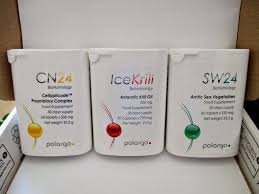The name vitamin comes from a Polish biochemist who called vitamins for the life's amino acid (white = life, amine = amino acid). Vitamins are organic compounds that the body needs for metabolic processes. These are substances that must be supplied externally, either by diet or by dietary supplement. The body makes a few yourself - including vitamin B-3, vitamin D and vitamin K.

The best vitamin source is the food in a varied diet, then dietary supplements where the raw materials are from natural sources. Today, most supplements are sold with synthetically produced vitamins. The vitamins are divided into two main groups, the fat soluble and the water soluble.
For the fat-soluble vitamins, vitamin A, beta carotene, D, E and vitamin K are considered. Generally, these have the following common characteristics:
- deposited in fatty tissue and live and the body retrieves them as needed
- rare deficiencies
- excreted through the stool
- can cause negative reactions at large doses over a long period of time
The best sources for fat-soluble vitamins are plant fats, plant oils, vegetables, meat, liver, butter, fish and egg yolks
The strength is most often stated in international units (I.E)
B vitamins and C vitamins are considered as the water soluble vitamins. The following general characteristics apply to these:
- occurs in the body fluids, serum, plasma and in the fluid between the cells
- Stored in small amounts, therefore daily feed is important and deficiency diseases are more common
- excreted through the urine
- harmless to the body, even in large doses, as the surplus is excreted in the urine
- found in fruits, vegetables, meat and dairy products
- The measurement units are given either as micrograms or milligrams
It is important in your daily life to ensure your body's optimal intake of vitamins as you want to notice increased energy and overall improved health.